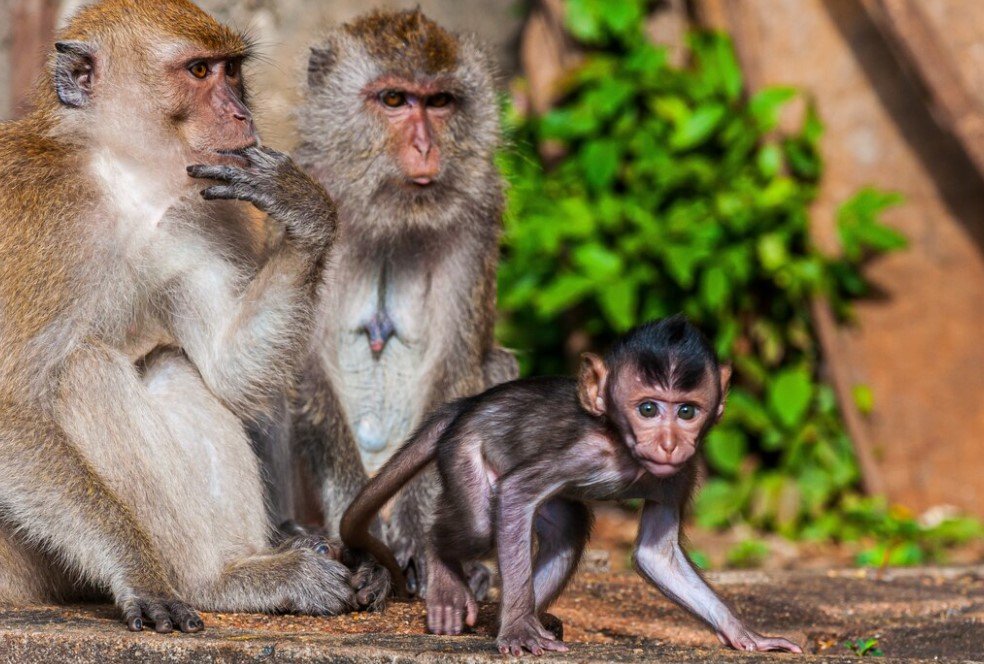The Covid-19 pandemic has highlighted the importance of having adequate and ethical animal models for biomedical research in India. Monkeys, or non-human primates (NHPs), are considered the best experimental models for testing vaccines, drugs, and therapeutics for various diseases that affect humans. However, India faces a severe shortage of NHPs for research, as it depends on imports from other countries, mainly China. This article explores why India needs to establish its own monkey breeding and research facilities to meet the current and future challenges of public health.
NHPs: The ‘holy grail’ of biomedical research
NHPs have been used worldwide for biomedical research since the 1900s, and their contributions have been enormous. According to an article by Dr Geetanjali Sachdeva, director of ICMR-NIRRCH, and Dr Balram Bhargava, chief of Cardiothoracic Sciences Centre at AIIMS, New Delhi, NHPs have been instrumental in the testing of vaccines for various diseases (polio, yellow fever, hepatitis, German measles, MMR, anthrax, and more recently Covid-19), testing of therapeutics (for typhoid, rheumatoid arthritis, cancers, allergies, leprosy, HIV/AIDS, diabetes), the discovery of blood and plasma components, key insights about the heart and brain, and several breakthroughs in the field of transplantation.

NHPs are preferred over other animals for biomedical research because they share many genetic, physiological, immunological, and behavioural similarities with humans. They also have complex social and cognitive abilities that make them suitable for studying the effects of environmental and psychological factors on health and disease. NHPs are often referred to as the ‘holy grail’ of biomedical research, as they can bridge the gap between basic and clinical research, and accelerate the development of safe and effective interventions for human health.
India’s challenges and opportunities in NHP research
Despite the importance of NHPs for biomedical research, India does not have dedicated national primate research centres or large functional breeding facilities for NHPs. The existing institutes like Central Drug Research Institute, Lucknow and National Institute of Nutrition, Hyderabad are working on small animals, mostly rodents, and cannot meet the demand and requirement of the biomedical sector. As a result, scientists at national research institutions have to rely on wild monkeys or imports from other countries for research studies. This poses several challenges, such as:
- High cost and dependence on foreign suppliers, especially China, which has imposed restrictions on NHP exports in recent years.
- Ethical and legal issues related to the capture, transport, and use of wild monkeys, which are protected under the Wildlife Protection Act, 1972.
- Lack of standardisation and quality control of NHPs, which may vary in their genetic background, health status, and susceptibility to diseases.
- Risk of introducing new pathogens or zoonotic diseases through imported or wild NHPs, which may pose a threat to human and animal health.
- Shortage of skilled personnel and infrastructure for handling, breeding, and conducting research on NHPs.
To overcome these challenges and to enhance India’s preparedness and response to public health emergencies, the Indian Council of Medical Research (ICMR) has initiated the establishment of two state-of-the-art facilities for NHP research: the National Animal Resource Facility for Biomedical Research (NARF-BR) in Hyderabad and the Sasunaghar facility of ICMR-NIRRCH in Maharashtra. These two facilities are expected to serve as crucial national resources for testing various drugs, vaccines, and lead compounds for diseases that cannot be tested in other non-primate species. Besides supplying NHP resources and conducting research, these facilities would also train a new generation of primatologists with special skills in primate handling. ICMR and other scientific agencies in India have also set up an Institutional Animal Ethics Committee (IAEC) and guidelines for the use of animals for biomedical research to ensure that research animals are treated in a humane way.
The way forward for India’s NHP research
Establishing the NHP breeding and research facilities is only a beginning in the right direction. Concerted efforts and commitment are needed to sustain these centres and to support meritorious research using NHPs. Some of the steps that can be taken to achieve this are:
- Creating a national network of NHP research centres and fostering collaborations among researchers, institutions, and industries.
- Developing and implementing standard operating procedures and quality assurance systems for NHP breeding and research.
- Promoting the ethical use of NHPs and adhering to the principles of replacement, reduction, and refinement (3Rs) in animal research.
- Enhancing the capacity and competency of researchers and staff involved in NHP research through training and education programmes.
- Encouraging public awareness and engagement on the importance and benefits of NHP research for human health and well-being.
India has the potential to become a global leader in NHP research, given its rich biodiversity, scientific talent, and biomedical expertise. By investing in and strengthening its NHP research infrastructure and capabilities, India can not only meet its own needs but also contribute to the advancement of science and medicine for the benefit of humanity.


















